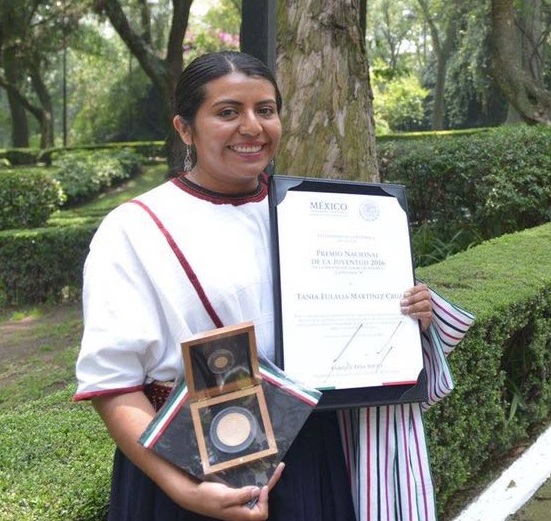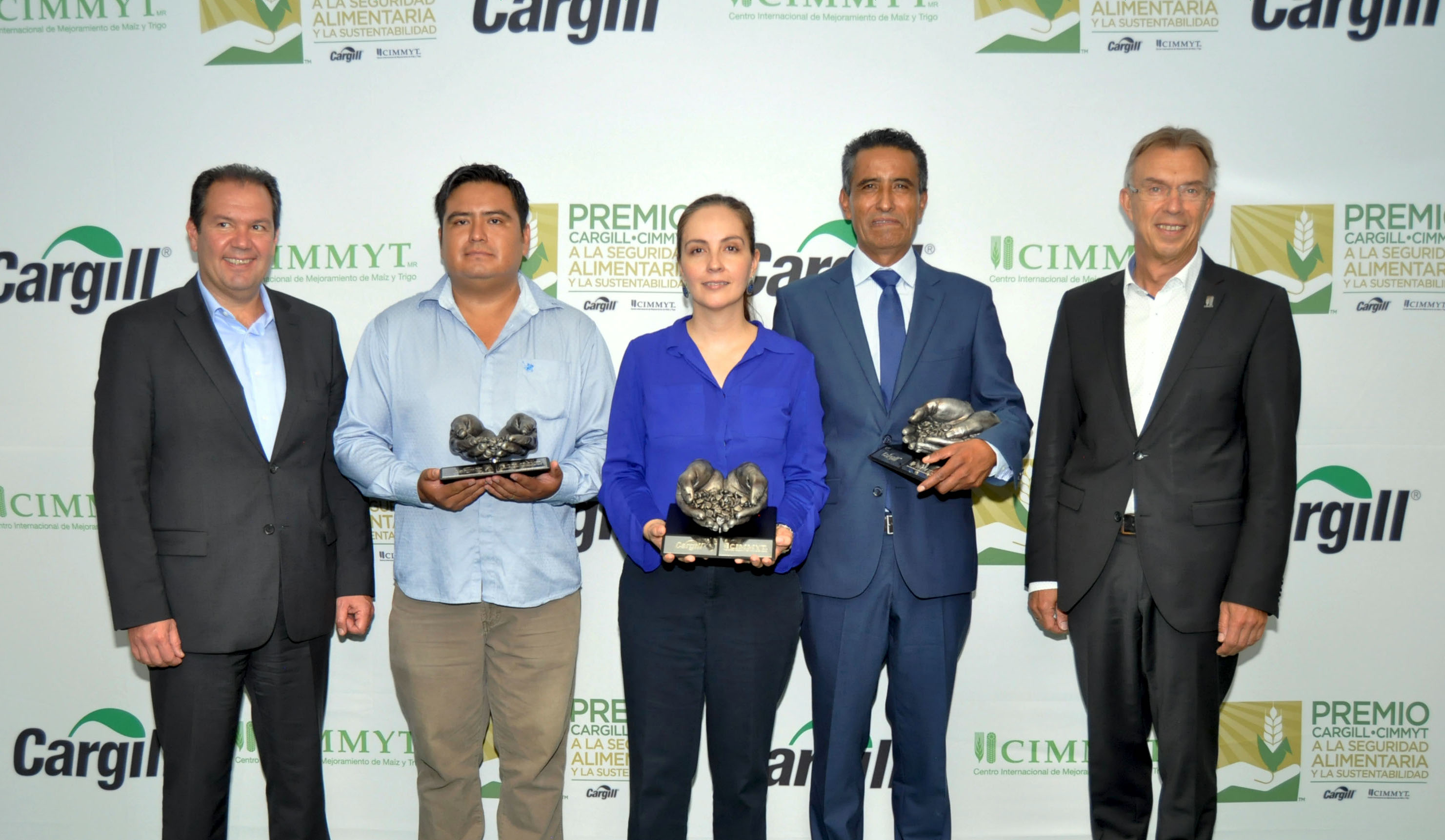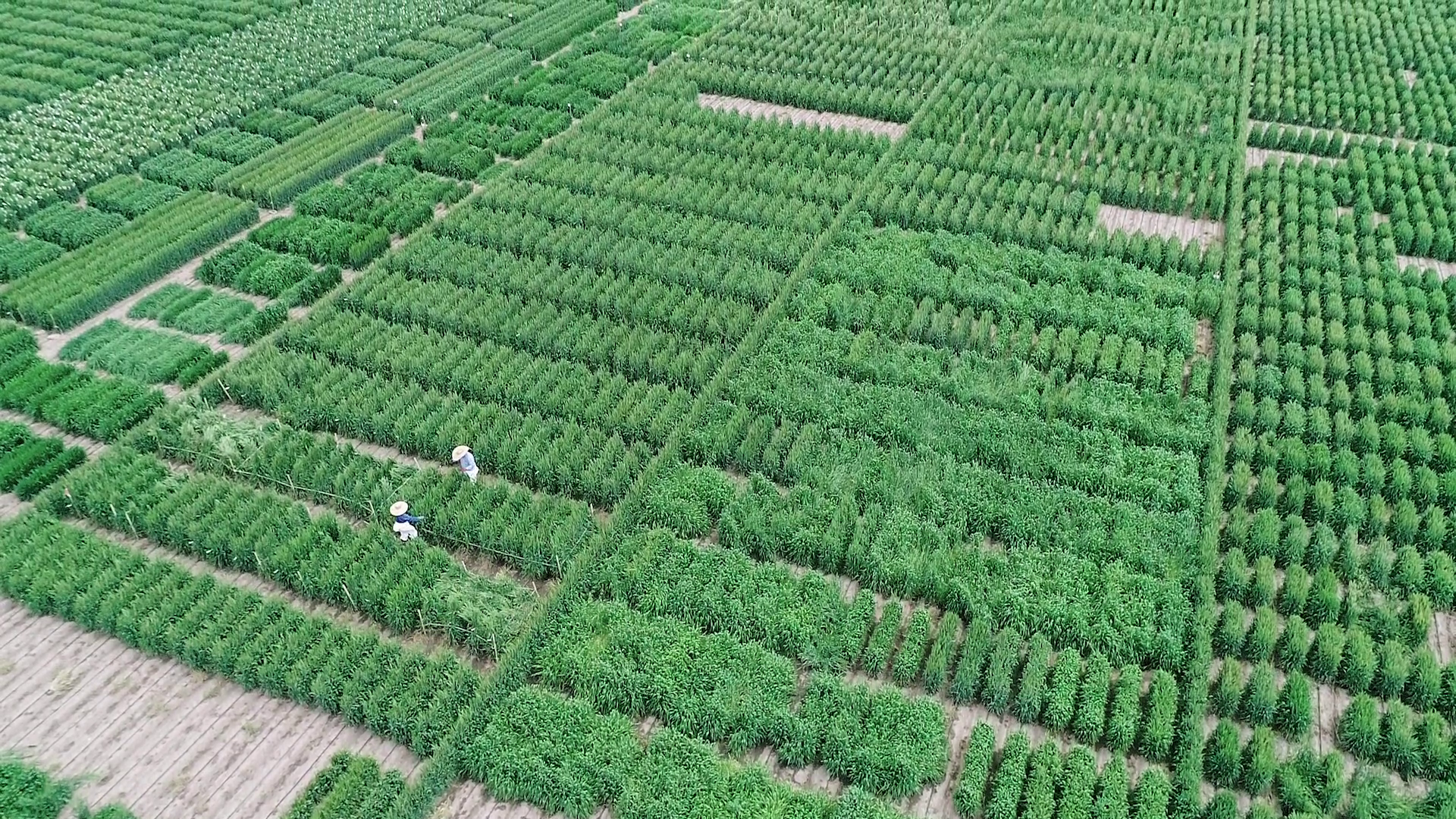
EL BATAN, Mexico (CIMMYT) — Tania Martínez, Ph.D. fellow with the International Maize and Wheat Improvement Center (CIMMYT), received the Mexican National Youth Award for her outstanding performance in academic achievement from Mexican President Enrique Peña Nieto.
Established in 1975, the award recognizes Mexican youth whose dedication inspires peers and exemplifies the values of personal growth and community development.
Martínez is at CIMMYT studying for her doctorate with the Knowledge, Technology, Innovation Group at Wageningen UR University in the Netherlands. She follows technology trajectories and processes of social inclusion/exclusion within them. As part of her research she is studying conservation agriculture, a set of farming practices based on minimal soil disturbance, permanent soil coverage and use of crop rotations, in Mexico’s Bajio region. Under MasAgro – a large Mexico-CIMMYT initiative – she is involved in work that helps smallholder farmers in breeding to improve their prized local maize varieties, and also looks at how farmers can access information through information and communications technology.
In 2001 at the age of 14, Martínez left her home of Tamazulápam Mixes, an indigenous village in the northern mountains of Oaxaca, to study at the Autonomous University of Chapingo in Central Mexico.
Her achievements are noteworthy. Of the more than 15 million indigenous Mexicans – about 15 percent of the country’s population – over a quarter of adults don’t have a single year of education and only 26 percent of women work or take part in other economic activities. Mexico’s indigenous citizens are among the country’s poorest and most marginalized.
“I decided to study agronomy because I was raised in the countryside and rooted to the land,” Martínez said. “In Chapingo, though, I met people who didn’t know there were places in Mexico without electricity, drinkable and sanitary drainage systems or even access roads. “Yes, they exist!’ I would reply. ‘I actually have been in places, they exist in many regions of Mexico”’
Nearly 30 percent of indigenous peoples in Mexico live without running water and 66 percent of households cook with wood and charcoal.
Prior to undertaking Ph.D. studies, she received a Fullbright scholarship to study at the University of Arizona, where she obtained a master’s degree in agricultural and biosystems engineering focusing on water management, irrigation and bioethanol production from sweet sorghum. Martínez then went on to work at CIMMYT as an intern and consultant before beginning her doctoral research with the organization’s socioeconomics program in 2013. Martínez credits meeting Conny Almekinders – her current professor and supervisor at Wageningen – and Carolina Camacho, a postdoctoral fellow with CIMMYT’s socioeconomic program, who specializes in social analysis of agricultural technologies, as the source of inspiration for pursuing her Ph.D. in the same topic.
“I hope more people are willing to help those who’ve not had the same opportunities and support I have had, to help change their reality,” Martínez said. “I’m grateful to all those who’ve helped me along the way, especially CIMMYT and the many researchers and people I have met in this long journey.”
As part of her National Youth Award, Martínez plans to donate books to libraries in marginalized communities and help develop policies that help these communities.

 Nutrition, health and food security
Nutrition, health and food security 

